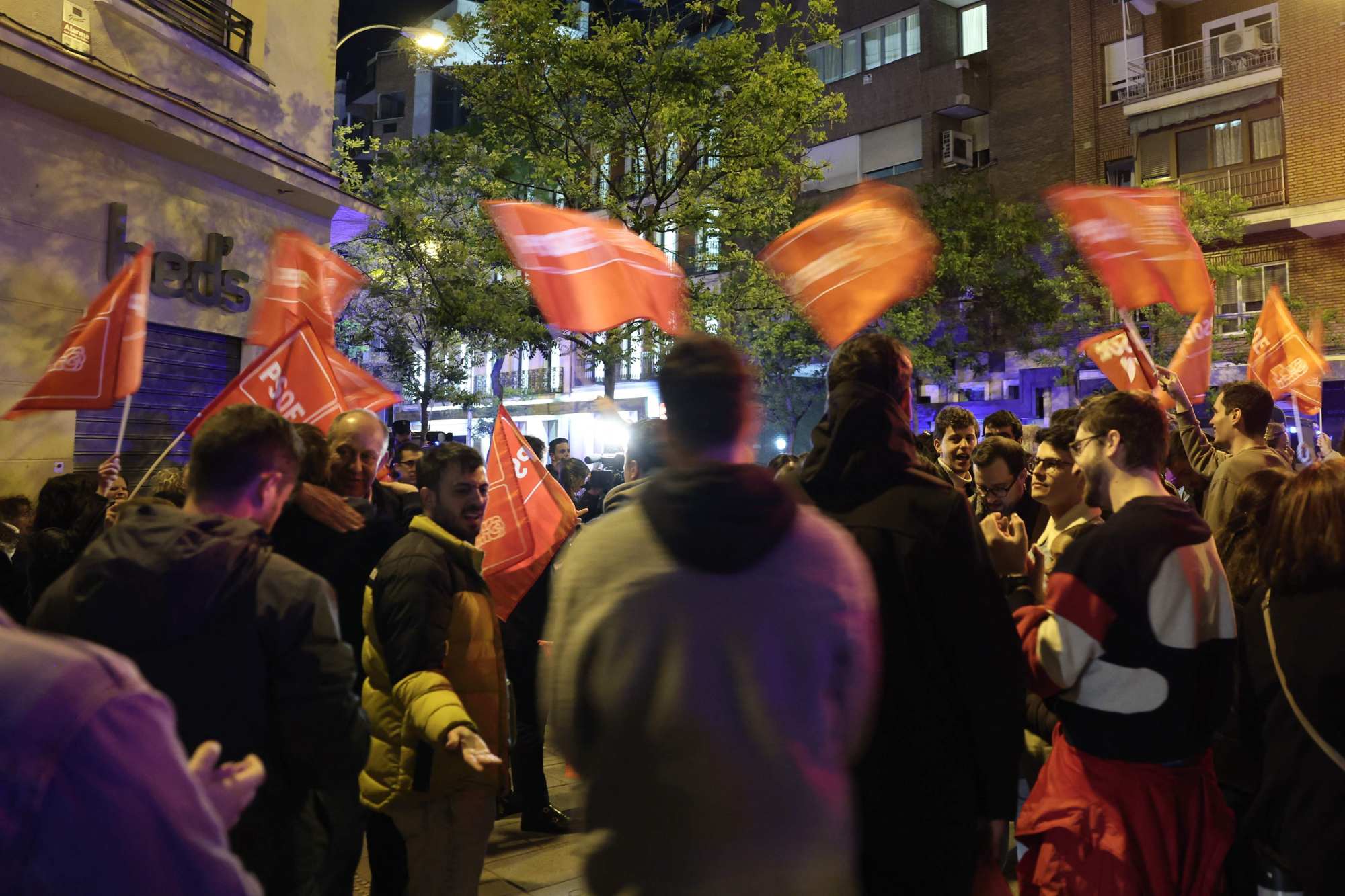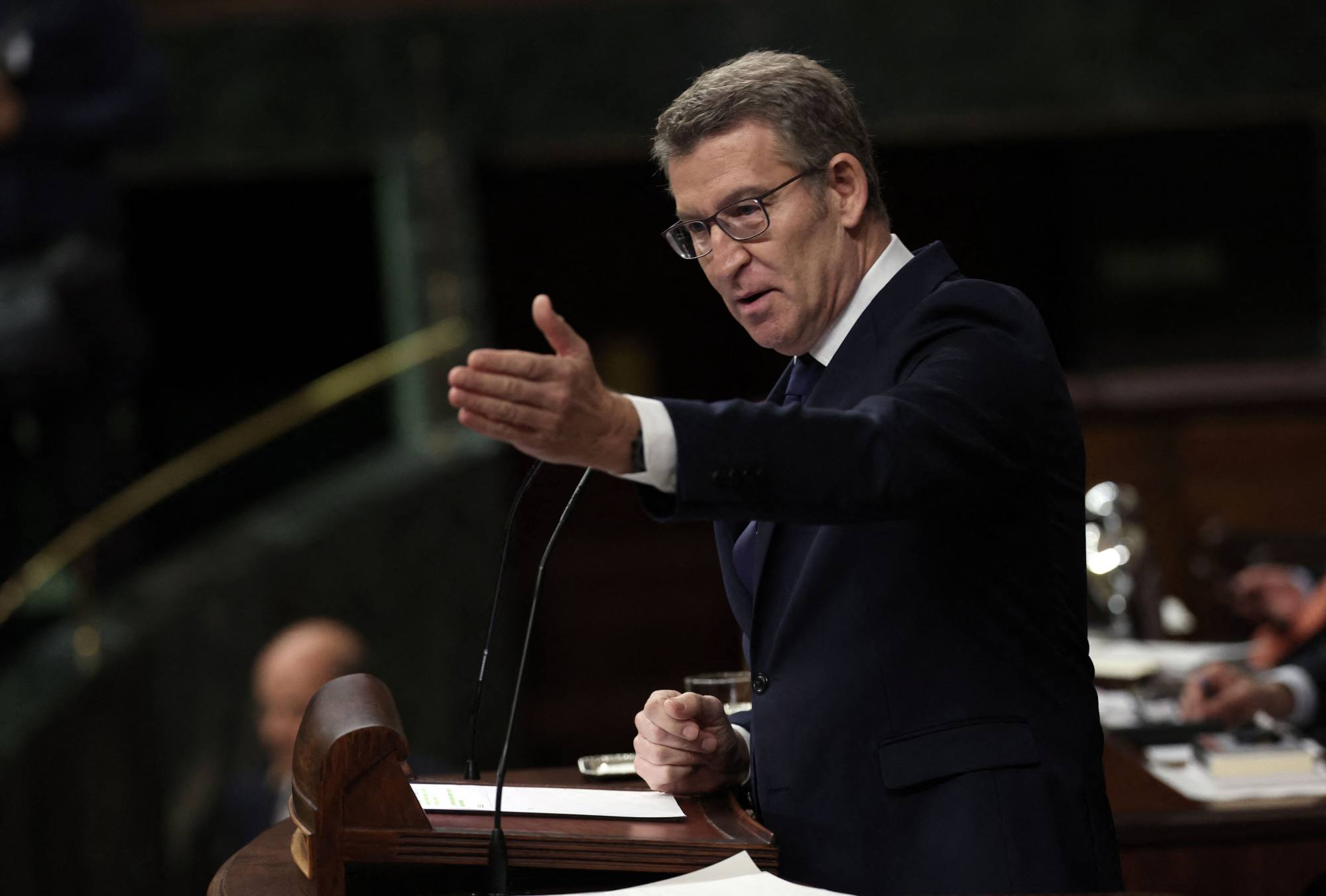If Sanchez decides to step down, it would most likely trigger new elections. It’s possible for the prime minister to resign and hand over power, but this would require the support of a majority of lawmakers, which would be highly unlikely in Spain’s politically fragmented parliament.

Sanchez could also be using this as an opportunity to trigger a vote of confidence as a potential means to shore up his mandate in parliament, according to Federico Santi, a senior analyst at Eurasia Group.
On Wednesday, a Spanish court announced it was opening an inquiry into Sanchez’s wife, Begona Gomez, for alleged influence peddling in connection to past business dealings while working for a university. The investigation follows a complaint by a small union, which Sanchez says is a politically motivated smear campaign by the far-right.
Sanchez’s announcement adds to the political uncertainty surrounding his government and to the policy paralysis that has stymied it since mid-2023, when the premier called snap elections after his party suffered a scathing defeat in local and regional ballots. The premier’s minority coalition is Spain’s weakest government in about 90 years.
The country is already set for a high-stakes election on May 12 in Catalonia, the second-largest region, where Sanchez’s Socialists are trying to notch a win against separatist parties. Earlier this month, an election in the wealthy Basque region saw two nationalist parties take about 70 per cent of the combined vote.
Spain pardons Catalan separatists jailed over 2017 independence vote
Spain pardons Catalan separatists jailed over 2017 independence vote
Sanchez is “trying to victimise himself, alleging a collusion between the opposition and the media”, opposition leader Alberto Nunez Feijoo said in a radio interview Wednesday. Feijoo added that Sanchez is trying to mobilise support for his party ahead of the Catalonia elections and subsequent European elections in June.
Sanchez has built a career on unexpected comebacks and surprise decisions, many of which he does not even share with his closest collaborators.
“This attack is unprecedented and so grave and crass that I need to stop and think with my wife,” Sanchez wrote in his letter.
“Many times, we forget that politicians are people. And I can say without shame that I’m a man deeply in love with my wife who watches helplessly the mud that is thrown on her day after day.”

Sanchez framed the court proceedings against his wife as part of a broader strategy of “harassment and destruction” against him by the far-right.
Spain has a long-tradition of keeping the private lives of its leaders’ families out of the public spotlight.
The letter comes against the backdrop of political discourse that has become increasingly aggressive over the past nine years.
In 2015, Sanchez sparked a massive controversy when he called Mariano Rajoy, a former prime minister, “indecent” in a debate, a word that would barely register in the current context – with politicians calling rivals liars, insulting each other and even using profanity in public.
Spain in stalemate after right fails to win predicted majority
Spain in stalemate after right fails to win predicted majority
The scandal has been widely covered for weeks by a group of news websites, most of them critical of the government. In his letter, Sanchez said that the judge will call as witnesses the heads of these websites which are “clearly right and far-right”.
Sanchez specifically accused Feijoo, who heads the conservative People’s Party, and Santiago Abascal, of the far-right party Vox, of being necessary players in the alleged harassment strategy he denounced.
Gomez, who has mostly kept a low public profile since her husband became premier in 2018, has found herself in the spotlight following news reports that she once had a business relationship with the owners of an airline, which went on to receive a large state-backed rescue package during the pandemic.
Feijoo’s PP has seized on the Gomez scandal to attack Sanchez, calling on the premier and his wife to provide formal explanations. To avoid a conflict of interest, the PP says Sanchez should have recused himself from a cabinet meeting in which the corporate rescue package was approved.

